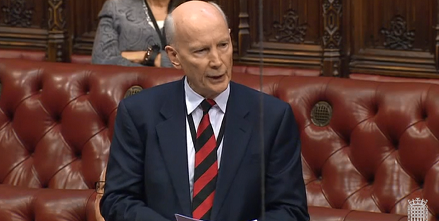Submitted by Dee Dee Frawley on Wed, 29/03/2017 - 08:46
A debate was held in the House of Lords on Thursday 23 March 2017 on the report from the Science and Technology Committee, A Time for Boldness: EU Membership and UK Science after the Referendum (1st Report, HL Paper 85).

The report calls for bold steps to prepare the UK for life outside of EU membership and to secure a more prominent place for this country in the global economy.
The report emphasised the importance to the UK of attracting and retaining talented researchers and workers in the field of science and the need for the Government to send repeated signals to the global science community that, post-referendum, the UK remains a welcoming place for talent. Furthermore, to further enhance the UK’s presence in the world of science, National Academies and the new UK Research and Innovation (UKRI) should be asked by the Government to search the world for outstanding scientific leaders, and attract them to the UK with compelling offers of research funding – one of the ‘bold’ steps called for throughout the report.
Professor Lord Robert Mair, Head of CSIC, and a member of the Select Committee on Science and Technology, said: “The continued success of our science and technology research is absolutely vital for the economic growth of the country, and it is the people who are crucial. At present, UK research is world-leading, second only to the USA. It is worth noting that in 2015 half of the UK’s research output was a result of international collaborations. About a third included EU partners. Losing this ability to collaborate freely would be very damaging.”
Underlining the importance of post-doctoral researchers, Lord Mair said: “This community of young dynamic scientists and engineers from all over the world is the engine room for the research that underpins the university’s world-leading reputation. One-third of these people are non-UK EU nationals. The picture is similar across the whole of Cambridge University and for other leading UK science and technology universities.”
Lord Mair pointed out that: “It is not only universities that are affected. According to the Royal Academy of Engineering, 25% of UK start-up technology companies were founded by non-UK EU nationals, and 45% of UK start-up employees are non-UK EU nationals. A clear message is urgently needed from the Government if these vital start-ups are to remain and thrive in the UK.”
“Many of these start-up employees are engineers,” continued Lord Mair. “At the very time when our country faces an engineering skills crisis we risk making recruitment and retention difficult. Engineering in the UK is highly dependent on non-UK nationals. We cannot afford to lose them or to deter new ones from coming.”
In conclusion, Lord Mair said: “The Government should take decisive steps to promote the UK both as a first-class location for research careers and an attractive partner for international collaboration. As soon as possible, the Government must provide certainty and stability for those researchers and innovators who are non-UK EU nationals. This is needed both for those currently working in the UK and for those contemplating a future here.”
Other recommendations in the report
In addition to retaining and attracting talented people, the Select Committee’s report also focused on facilities, research infrastructure and regulation and funding, and potential opportunities offered by Brexit. Recommendations included the need to identify opportunities to host at least one new international research facility in partnership with governments or research funders from other countries and the need for the Government to compensate fully for any reduction of funding on science and research from the EU. The report recommends that Government should explore collaborations and shared protocols in the scientific domain with governments and funding agencies in major scientific nations, particularly where existing relationships are already strong. Additionally, the Government must ensure that it has appropriate scientific advice during the Brexit negotiations. This includes a recommendation to assess the need for a Chief Scientific Adviser in the Department for International Trade, bearing in mind the scale of scientific analysis that underpins international trade regulations and which may be required for trade negotiations.
The entire debate can viewed on Parliamentlive.tv here and the full Hansard report of the debate can be read here.
The Science and Technology Committee’s report, ‘A Time for Boldness: EU Membership and UK Science after the Referendum’ (1st Report, HL Paper 85) is available here.
Related links:
